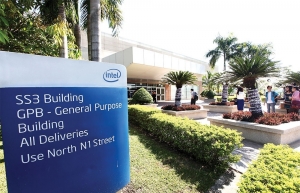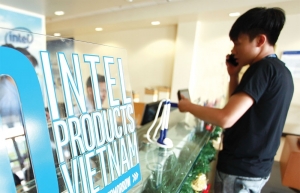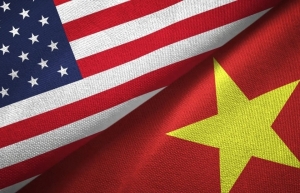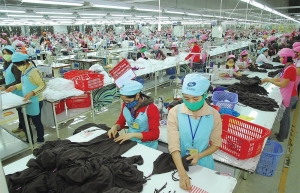Building on 30 years of US-Vietnam advancements
 |
| Adam Sitkoff, executive director American Chamber of Commerce in Hanoi |
The US is one of the top foreign investors in Vietnam, and despite considerable challenges posed by headwinds in the global economy, the US remains Vietnam’s biggest export market, which drives investment and growth throughout Vietnam.
American companies and investors bring high-quality products and state-of-the-art technologies, services, and business practices to Vietnam. We share an interest in developing a globally competitive workforce, creating quality jobs, and investing in the professional development of our Vietnamese team members. High-quality foreign investors not only help grow Vietnam’s economy, but also help grow the entire ecosystem of local companies and entrepreneurs here.
Vietnam is increasing its attractiveness as a destination for American investment as many companies seek to diversify their global supply chains. I believe the most important factor for a favourable investment climate is a fair, predictable, and streamlined regulatory environment that values innovation - not only to draw in new investment, but also to maintain and grow the investment already here. There is no doubt that existing investors expanding operations is the best advertisement to attract new investment.
Last year’s economic performance exposed some weaknesses, including a strong dependence on foreign market trends, a vulnerable domestic private sector, and power supply shortage. Additional progress on structural reforms in state-owned enterprises, government administration, and regulatory processes for the private sector is needed to ensure Vietnam regains its pre-pandemic momentum and climbs the manufacturing value chain.
The good news is that over half of our members say they are performing on target or better than expected here. The bad news is that over half of our members feel the business climate needs improvement or some key areas in Vietnam would need some more improvements.
We welcome the government’s focus on supply chain growth and attracting high-tech manufacturing and investment. Government action can help the country maintain its competitive edge as global investors seek investment and manufacturing destinations throughout Asia, Africa, and Europe. However, without electricity that is consistent, affordable, reliable, and sustainable, it will be difficult to engage many new investors.
The one thing that ties all businesses and any future investors together is the need for energy reliability and immediate access to renewable energy. Keeping energy systems working is an essential goal of good energy governance, and granting investors access to renewable energy is a competitive advantage for the country. Power supply and demand dynamics are complex, and a collaborative approach between the public and private sectors is essential to develop affordable, reliable, and sustainable electricity.
Current investors need more streamlined regulations to install and provide access to renewable energy, as many new investors and expansion projects need reliable access to renewable energy to invest here. The implementation of the national Power Development Plan VIII, the development of the decree on rooftop solar development, access for renewable energy in industrial zones, and the guidance on the direct power purchase agreement mechanism are pivotal.
Vietnam is well-positioned to capture significant investment as companies increasingly seek to diversify their global supply chains. Like all major sourcing locations, Vietnam needs to continuously evaluate what its competitive advantage is.
We believe Vietnam needs to prioritise labour and engineer training, sustainable practices, work permits for foreign engineers, and the country’s ability to support a more vertical industry, particularly as companies are looking to diversify tier 2-3 suppliers from China.
We recommend removing barriers to foreign investment in professional and vocational training to assist the development of important skills and capabilities in the workforce. We also urge the government to provide better support for small- and medium-sized manufacturers.
These companies are part of critical supporting industries, but their individual investments are small. Current local department of planning and investment metrics often do not favour such investors, causing delays in licensing and permissions. These companies are often premium employers of skilled and professional labour, and are critical to building the support system that global manufacturers need here.
Our members also recommend the government develop a better regime for approving investments in brownfield facilities. International manufacturers struggle to sell facilities they have already built/invested in, and potential buyers have trouble getting purchases approved and executed, and business licences for brownfield facilities approved. A functioning brownfield market is an important facilitator for investment here.
Improvements in supply chain financing and facilitation of cash needs during manufacturing transactions are needed and will help grow investment in Vietnam.
Such financing is difficult for domestic companies to obtain from domestic banks, and almost impossible for foreign companies to access. By contrast, in most competing markets, a customer purchase order is sufficient documentation for a bank to provide short-term financing enabling a manufacturer to obtain materials and perform operations before receiving payment from the customer.
 | Building on far-reaching US-Vietnam cooperation As we welcome a new year, we at the US Mission in Vietnam take this opportunity to wish the Vietnamese people every joy and happiness in what we hope will be a very prosperous year filled with blessings and good fortune. During this special time of year, we reflect on the bonds that bring together friends and family, as well as the growing ties that unite our two countries and our peoples. |
 | Deals bode well for US-Vietnam ties The new economic cooperation framework involving the United States and Vietnam, and the updated version of a trade and investment deal, are set to drive bilateral ties forward. |
 | Landmark year for US-Vietnam relations The road for Vietnam and the US to officially raise their existing comprehensive partnership to a strategic one is looming large, expected to help both economies to further increase both their investment and trade ties. |
 | Momentous year for US-Vietnam relations Vietnam and the US are beginning to materialise their comprehensive strategic partnership, with economic security cooperation prioritised, particularly in the semiconductor and supply chain ties. |
 | US considers upgrading Vietnam’s economy status The US is considering the recognition of Vietnam as a market economy, which means that Vietnamese goods entering the US would avoid many risks caused by trade barriers. |
What the stars mean:
★ Poor ★ ★ Promising ★★★ Good ★★★★ Very good ★★★★★ Exceptional
 Tag:
Tag:
Related Contents
Latest News
More News
- SK Innovation-led consortium wins $2.3 billion LNG project in Nghe An (February 25, 2026 | 07:56)
- THACO opens $70 million manufacturing complex in Danang (February 25, 2026 | 07:54)
- Phu Quoc International Airport expansion approved to meet rising demand (February 24, 2026 | 10:00)
- Bac Giang International Logistics Centre faces land clearance barrier (February 24, 2026 | 08:00)
- Bright prospects abound in European investment (February 19, 2026 | 20:27)
- Internal strengths attest to commitment to progress (February 19, 2026 | 20:13)
- Vietnam, New Zealand seek level-up in ties (February 19, 2026 | 18:06)
- Untapped potential in relations with Indonesia (February 19, 2026 | 17:56)
- German strengths match Vietnamese aspirations (February 19, 2026 | 17:40)
- Kim Long Motor and AOJ Suzhou enter strategic partnership (February 16, 2026 | 13:27)






















 Mobile Version
Mobile Version